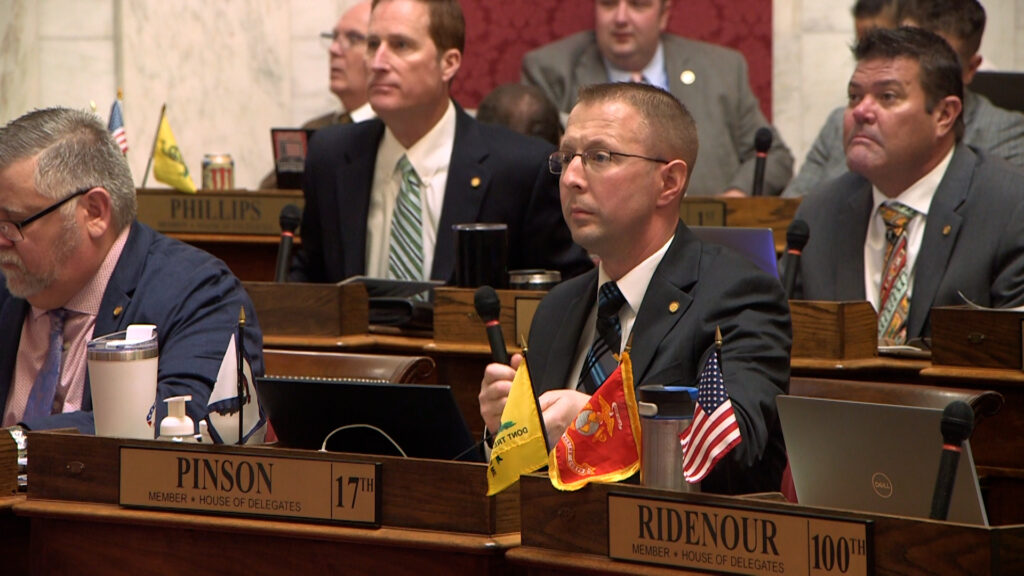A public hearing is set for Friday on a bill “relating to forbidding government limitations on the exercise of religion.” The contentious proposal failed in 2016.
Del. Jonathan Pinson, R-Mason, is the lead sponsor of House Bill 3042 called the Religious Freedom Restoration Act. The law would establish a judicial test if a complainant said a government action, with a few compelling exceptions, would substantially burden a person’s exercise of religion.
Pinson used the example of a Mennonite legally compelled to place an orange rather than a white slow moving vehicle sign on the back of a horse and buggy.
“A white reflective placard is just as effective at warning motorists of a slow moving vehicle as a bright orange one. Orange is not against my religion, I don’t have a conviction against it,” Pinson said. “But there are religious minorities that do have a conviction against it. So the long story short, the Religious Freedom Restoration Act is to protect religious minorities and to protect religious conviction.”
Del. Joey Garcia, D-Marion, is among those lawmakers saying religious freedom is already guaranteed by the First Amendment, and has concerns that the bill would nullify anti-discrimination protections enacted by West Virginia municipalities.
“It could strike down any law that we already have on the books based on somebody saying that it interferes with their religion,” Garcia said. “However, it’s not necessarily religious activities. It’s in the daily things that we do. It’s whether somebody can get a job, whether somebody can get housing. There’s a lot of situations where there may be discrimination and I think that this is a type of bill that can be used to allow a group of people to discriminate against someone else and use religion as an excuse for that.”
Pinson said the federal government passed a Religious Freedom Restoration Act in 1993 and since then, 31 states have enacted a form of the act, either in code or by judicial edict. He said the law has not been used to thwart local anti-discrimination protections.
Garcia said he knew of several situations where anti-discrimination problems with the law did come into play.
West Virginia’s Religious Freedom Restoration Act was advanced by the House Judiciary Committee to the House floor.
The Judiciary Committee will host a public hearing on HB 3042 from 4 to 5 p.m. Friday, Feb. 24 in the House chamber. Sign-ups to speak will begin at 3:30 p.m. in the chamber.




















